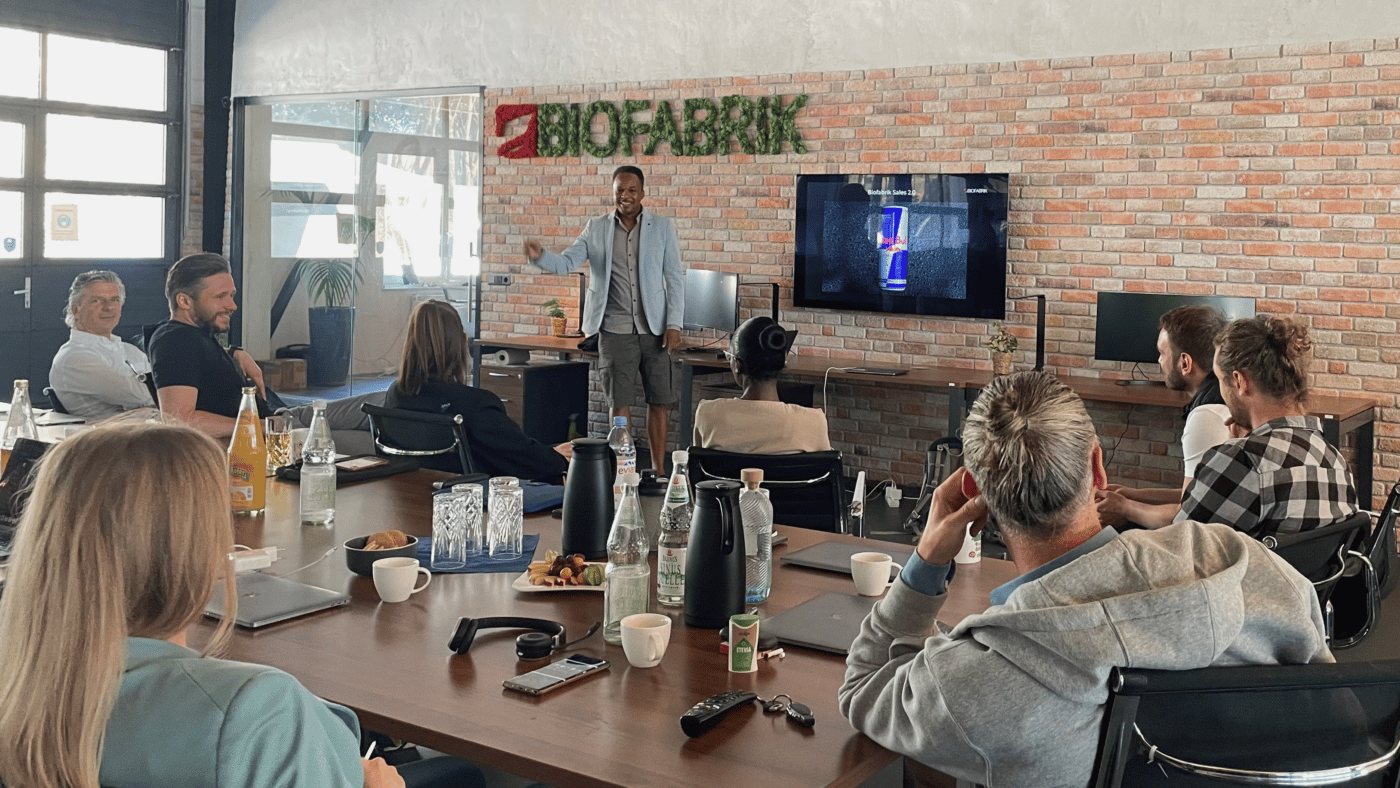
Share this post on social media
After over a decade in the hardware industry, we have faced the common challenges encountered by clean tech startups worldwide. However, by forming global partnerships and putting forth tremendous efforts, we have successfully established a sophisticated and scalable infrastructure. As we continue to evolve, we are excited to announce our latest strategic move – transitioning from self-developing technology to opening our infrastructure to other startups. Our new platform, the Impact Family, provides hardware startups with the opportunity to scale their ideas globally while focusing on their core competencies and leveraging Biofabrik’s experience and infrastructure. This is a significant step towards building an economy with a healthy ecological impact.
A post by Oliver Riedel
The good news first: worldwide, we can observe an increasing number of startups in the environmental sector emerging from the heart of our now not-so-small Cleantech universe. Eleven years ago, when we first introduced our technology for converting plastic into fuel and new plastic, we were relatively alone in our efforts. Today, however, we are surrounded by a gratifying number of teams who have also embarked on this brave journey and are showcasing impressive technologies.
But it is not just in the now finally acknowledged field of chemical recycling that new startups, ideas, and successes are popping up virtually every day. Solutions for drinking water from the air, hydrogen from desert sun, energy storage systems, or completely reimagined sustainable solutions for CO2 minimization are increasingly giving cause to look positively towards our planet’s collective future from this perspective.
In addition to continually improving political and social conditions, we are particularly pleased that the capital side, especially venture capitalists and private equity, are increasingly recognizing that we cannot save the world with just another software product. Instead, the capital market must also bear the risks of Cleantech startups, and funds are beginning to be established accordingly.
All of this sets the stage for an economy whose foundation is a healthy ecology. And at least for those of us in the midst of it all, it inspires a gentle hope that we can still steer the future in the right direction for our future generations.
I believe it is okay to say this in a world dominated by bad news and doomsday scenarios. This doesn’t mean everything is in the clear, but it does mean that more and more people believe they can solve the problems that society faces and are taking action instead of just complaining. However, this poses some special challenges for entrepreneurs in the environmental sector.
In addition to the usual challenges that companies typically face, hardware startups face some particular ones:
Research and development are expensive and time-consuming, and due to a lack of financing solutions, only a few developers survive the first crucial years, especially in our hemisphere. The time from the initial idea to the first functional prototype is therefore the first critical hurdle to overcome, and where most startups fail.
If this phase is successfully completed, permits and certifications, as well as the establishment of a functional serial production, come into play. This phase can easily turn out to be just as long and costly as the development phase – and it is often underestimated. But not only that. In most cases, this phase has not yet been financed, and a professional and scalable production usually requires massive amounts of working capital until the first customer is supplied.
And if you are one of the few percent who also successfully master this stage, you have to build a functioning technical marketing and sales structure that can be scaled in a predictable way. Traditional marketing channels do not work for investment goods in the millions with highly explanatory products, except for a few exceptions. Sales engineering with constantly changing product specifications can usually only be afforded by large and long-established companies – which are rarely willing to open up their resources to startups.
This brings us to the last and biggest challenge: international scaling, commissioning, and support systems. While software startups simply order more server architecture from one of the well-known cloud providers with a click to handle double the number of customers, it is imperative to provide physical and human infrastructure for hardware to keep up with sales growth. And if this is in the triple-digit percentage range per year, as it is with us, then it can lead to sleepless nights.
So long story short: hardware is a hard business. But what is the solution then?
For the past eleven years, we have been tackling these problems and have successfully solved most of them. With representations in over 40 countries, three active manufacturing partners worldwide, three established technologies of our own, and several sales operation centers that represent multilingual global sales activities at the highest technical level, we have found 1,001 solutions to 1,000 problems.
And it is precisely this infrastructure that other tech startups need. So what could be more natural than opening up this valuable structure to other startups that can present functional prototypes but are miles away from the rest?
And there it is, the Impact Family:

We want to provide every team, whether from universities, private companies, inventors or spin-offs, with the platform they lack. We proceed in clearly defined steps:
This flywheel ensures continuously and permanently improved products and is complemented by our trading partners, who trade the resulting products such as fuels, CO₂ certificates, recycled plastic, or fertilizer worldwide – including logistics management, billing and complete, performance-based transparency for all partners.
Let’s go!
With this platform, we finally offer startups what they need most to scale their ideas globally and give them the opportunity to focus on their core competencies: the continuous development and improvement of their technology. We do not see the various solutions in similar sectors as competitors – but all as part of the solution, which must be distributed correctly.
As an example of pyrolysis, there are now countless players specializing in various residual materials or production capacities, with sometimes highly innovative detailed solutions. And not every customer has the same requirements, so different solutions fit different customers. And the more solutions we have, the more comprehensive we can represent customer projects. Our global off-take agreement with one of the world’s largest commodity traders ensures a secure business model for every customer.
When we started the test run for the Impact Family project with a small team at the beginning of 2022, we were not aware of the overwhelming amount of good ideas and projects that have reached us since. And new ones are added every day.
We will now start with the following two technologies:
Biotumen is a binder made from residual natural materials and has the potential to revolutionize the construction industry. It is a sustainable alternative to bitumen, which is derived from crude oil and is not only a finite resource but also highly polluting. Biofabrik’s Biotumen is made from organic waste materials, meaning it is not just sustainable but cost-effective as well. Biotumen has a wide range of potential applications, from road construction and roof sealing to bridge building and pipeline coatings.
Clinical waste remains a huge problem in virtually all regions of the world. While in industrialized countries it is mostly burned at great cost and environmental impact, in developing countries it often ends up simply in landfill sites, becoming a source of infections and diseases. In the USA alone, hospitals and clinics produce enough contaminated waste every year to fill the Empire State Building 26 times. The WASTX Cleanic not only solves this problem fully automatically, but also profitably for the operators.
For us at Biofabrik, this shift in strategy – moving away from developing technologies and towards being a platform for the best and most influential technologies that solve environmental problems sustainably with decentralized hardware – is the logical next step on our hopefully long journey together.
For startups, as far as we know, it is the first and only platform that provides a fulfillment solution for all the challenges that a Cleantech company must face from the beginning, on an international level.
For financial partners and investors, it is a solution that complements their investments through a professional system and that physically and logically secures the target company’s success through established processes and measurable systems.
And for our planet, it could be a great opportunity to roll out world-changing technologies globally that would never have made it to the world market from the inventor’s garage, and inspire other teams to follow suit.
Whatever you may think of Tesla and its CEO, showing that something works can sometimes turn an entire industry on its head for the better, even if the underlying idea only provided the basic proof in the end.
This was true for electric cars, it was true for pyrolysis technologies, and we believe that there are many more technologies that just need a little push to have a big impact on established industries. So let us look forward to a new episode not only of our own, but also of the story of as many partners as possible and for whom this platform will hopefully provide a helpful solution.